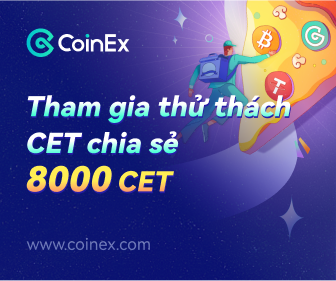
Non-Fungible Tokens, or NFTs, have taken the world by storm in a very short time. From record-breaking sales and use as profile pictures on social media among celebrities and ordinary people, all the way to real estate NFTs, it is undoubtedly a technology of the future.
When most people think of NFTs, they think of digital art and profile picture style collectibles, but NFTs are much more. Even without dwelling too deeply on what they are, you find that they have the unlimited potential, and more importantly, they have a role to play in every sector.
At their simplest, NFTs represent tokenized records on the blockchain. Due to the nature of the blockchain, it is nearly impossible to change these records or alter them arbitrarily. Thus, NFTs represent ownership of an item, digital or real-life. This means anything and everything could be turned into an NFT, so long as a person can own it.
NFTs have been developed for multiple uses across multiple platforms. Some of which are popular and others relatively known. One of the sectors where NFTs have found uses is the Real Estate sector. It would surprise you to know that real estate NFTs have been a thing since 2017.
What are Real Estate NFTs?
NFTs are recorded on the blockchain, which helps confirm ownership and identity. Through them, it becomes possible to find the true owner of an asset and previous transactions on it. These features are applicable in the instance of real estate NFTs.
In simple terms, real estate NFTs are records on the blockchain showing real estate ownership. Real estate, in this context, is ownership of land, property, or interest. Therefore, a house or land could be represented as an NFT. It then becomes easy to confirm details about the land or property and previous transactions. However, that is not all.
Virtual Real Estate vs. Physical Real Estate NFTs?
The web3 wave has brought a lot of changes with it. One of such change is the introduction of the Metaverse. The Metaverse is like a virtual world where digital assets come to life. These virtual worlds have been developing with the rise of cryptocurrencies and NFTs. Accordingly, companies like Meta have spent billions trying to create these virtual worlds.
In the Metaverse, it is possible to own properties too. These, like physical real estate, are NFTs capable of being owned. The extra catch to it is that they exist in a Metaverse where users can access, explore, and even develop it further.
Companies and brands are exploring the space too. Many companies are building virtual replicas of their office spaces and stores in the Metaverse. Users who explore these virtual stores will have the same experience as someone who went to the store in person.

How can NFTs impact Physical Real Estate?
NFTs have impacted every aspect of life they have been applied to, and real estate is no exception. While it might be difficult to wrap your head around the terminologies or understand how it works, the benefits are immense and revolutionary. Here are some of the aspects of physical real estate that NFTs impact.
Permanent Record
A key feature of blockchain is a permanent record. This permanent record is unchangeable and is available for the public to see. In the context of real estate NFTs, they can be programmed to collect crucial information. For instance, if you purchase a land NFT, the transaction is immediately recorded on the blockchain. Any prospective buyer interested in that same land you hold will have access to it. Not only that but all other relevant information such as how much it was sold, legal dispute, payment, action, and other relevant information.
Swift and secured Transfers
Blockchain transactions are renowned for their speed, security, and low fees. Since NFTs run on the same technology, your real estate transactions would be executed in minutes and be secured. This is unlike the traditional mode of transaction that could take days, weeks, or sometimes months to complete.
Also, it removes the expensive transaction fees from middlemen – financial institutions – that are usually required to facilitate a sale. Sometimes, these hefty administration fees discourage parties from completing the transaction. However, with an NFT, it is solely between the buyer and seller and no other intermediary.
Automated contracts
Using smart contracts in real estate NFTs brings a whole new experience to the users. Smart contracts are systems within the NFT that tell it what to do and at what time. As a result, when you sell your NFT to another person, a smart contract executes that transaction.
In the case of real estate, reaching an agreement could take a while. Perhaps due to financial reasons or the need for other things to be carried out. The smart contract of the NFT could be programmed to take cognizance of this. Thus, if a buyer or seller fulfills these duties, the smart contract triggers a sale to the buyer and sends the purchase price to the seller.
Fractional Ownership
Like traditional real estate practice, several individuals could co-own a single property. This co-owning could work in instances where many people want to pool their funds together to buy the property. Or where the property developer wants to raise money to finish a project and then asks others to join funds together.
In this instance, the parties involved can easily secure shared ownership. Basically, the co-owners could create multiple tokens to represent the interest all the individuals who pooled their money together have. Asides from serving as a show of ownership, it would also help secure their rights, especially in cases where the funds are unequally joined together.
In addition, the parties in that fractional ownership agreement can decide to sell their share to another person. The person who buys, in that case, inherits the shares of the seller and every other right the person has. More importantly, no other person would have control over that shared token other than the recipient.
Source NFT Plazas



